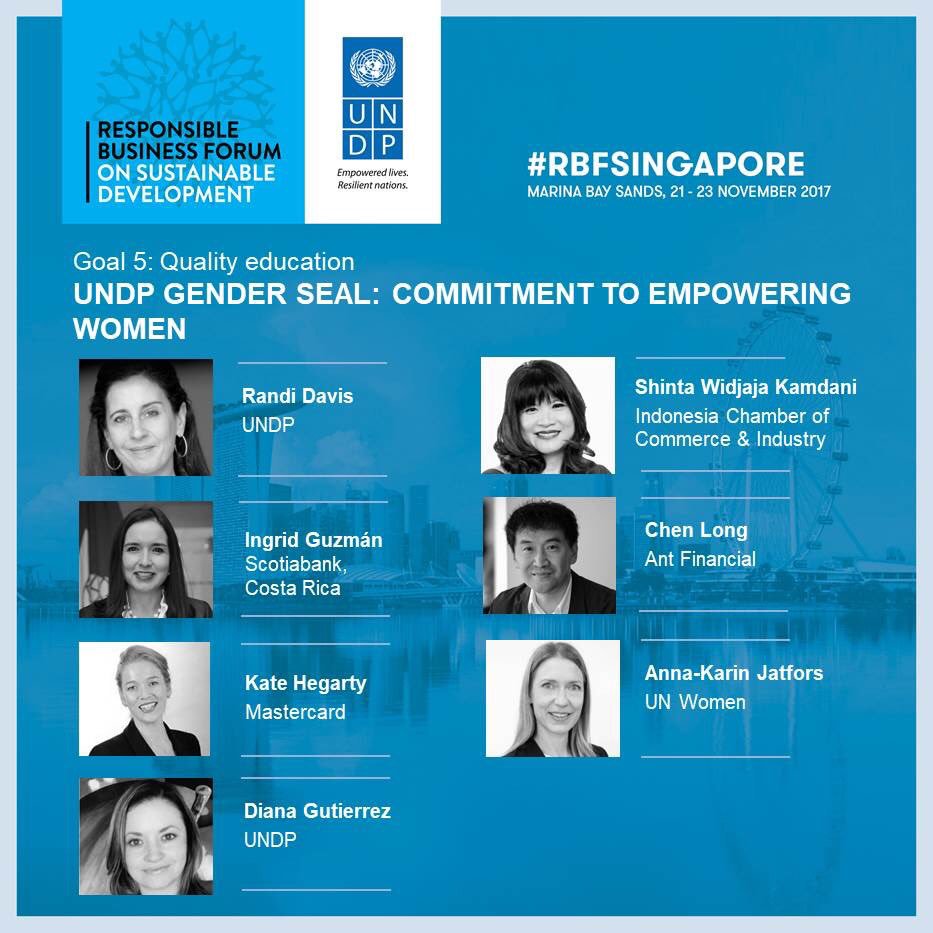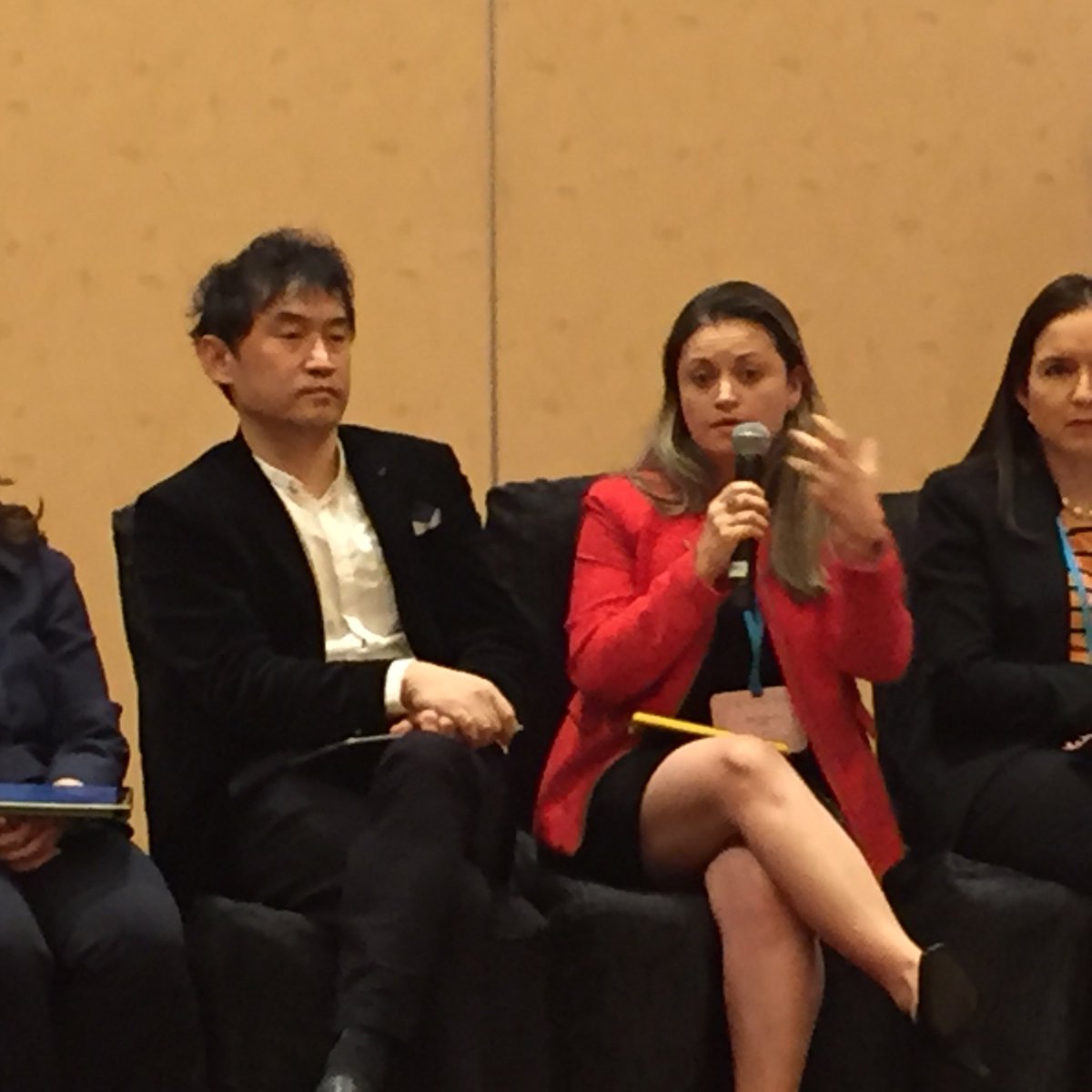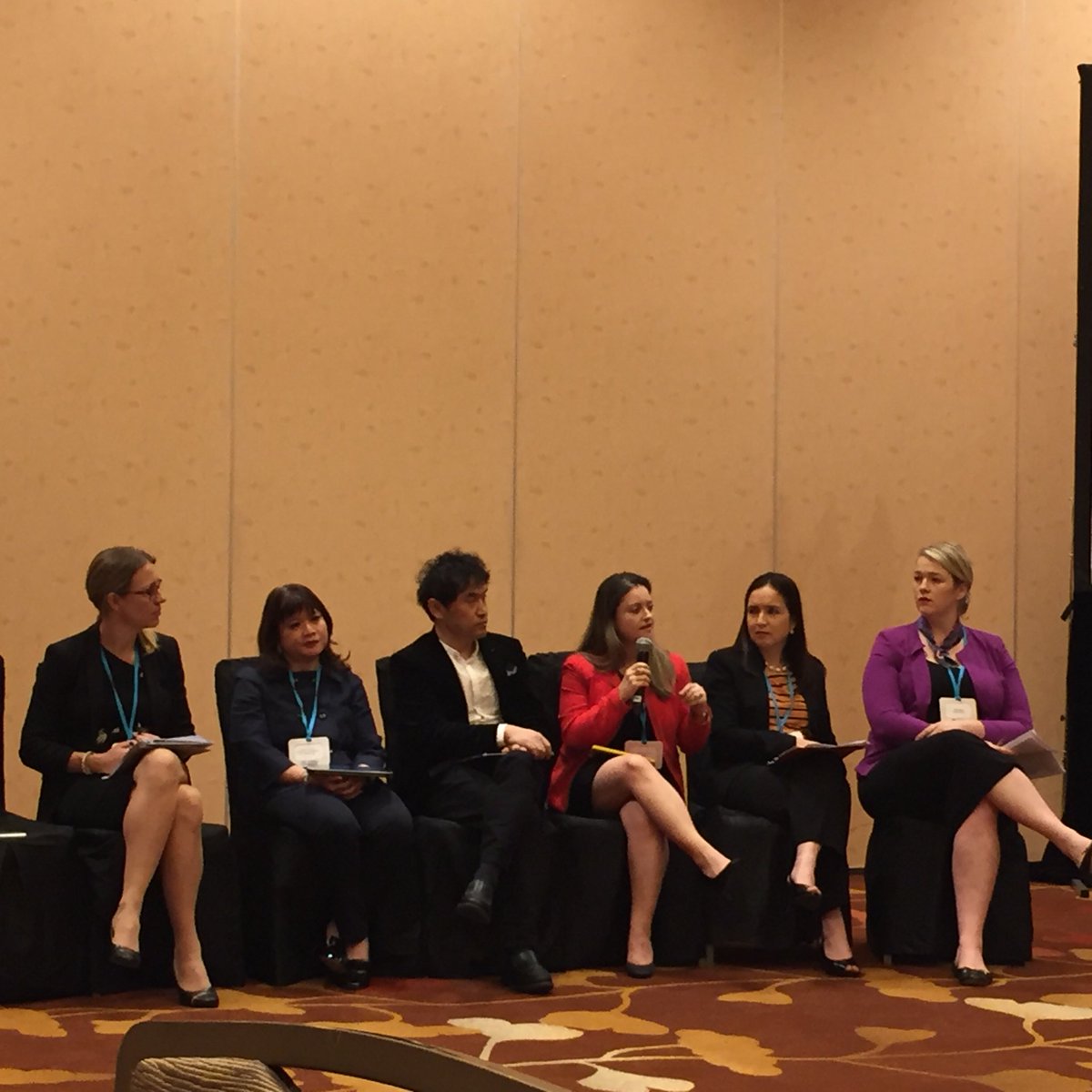The Responsible Business Forum on Sustainable Development Goals hold in Singapore welcomed over 600 business leaders from across the globe and senior government officials, UN Agencies and some of the world’s largest NGOs and hosted an important session on the UNDP Gender Equality Seal for Business Sector (GES) led by the UNDP Global Director for Gender equality, Randi Davis. The RBF brought more than 600 leaders to share examples of action, report on progress and achievements to implement the SDGs and showed a collaborative approach to inclusive and green economic growth.
The workshop “the UNDP Gender Seal: Commitment to Empowering Women” brings 7 experts from UNDP and UN Women as well as private sector to share their best practices and experiences demonstrating how greater gender equality means good business. Randi Davis and Diana Gutierrez from UNDP presented the Gender Equality Seal Certification as “a way to help companies to go from commitment to action”.

Empowering women is a precondition to solving poverty, inequality and violence against women. Closing the employment gap between men and women could add $12 trillion to global GDP by 2025. If women could play an identical role than men in the labor market, $28 trillion would be added. As Diana Gutierrez said, “companies are willing to find ways to eliminate gender pay gaps”.
This Forum proposed an integrated approach to implement the 17 SDGs, showcased solutions to accelerate action and provided innovative tools for measuring performance and impact of social change. During these 3-days event, businesses, governments, UN Agencies, NGOs, investors and international experts presented case studies, best practices related to the 17 SGDs.

Speakers confirmed that, from a business perspective promoting equal pay between men and women, improving the presence of women in boards and leadership positions, is a strategy that will make a positive difference in the business itself and for women as well. As Shinta Widjaja Kamdani from Indonesia Chamber of Commerce & Industry said, “we also need to look at gender equality in the workplace” in order to outperform.firms with greater level of diversity in their board management, perform better than those with lowest level of diversity. Companies with the highest percentage of women outperform those with the lowest. More and more private companies across the globe are committing to gender equality in their work force. “Our workforce is as diverse as you can imagine” said Ingrid Guzman from Scotiabank and we are very committed to diversity and gender equality”

Key recommendations from companies to other private sector leaders included:
- Implementation of non-discriminative, gender-sensitive recruitment and retention practices and to embed gender equality in policies and processes for both employees and governance bodies.
- Establish a zero-tolerance policy towards all forms of violence in the workplace and prevent sexual harassment.
- Ensure equal opportunity for career development and promotion for those employees with care responsibility and recognize the burden of unpaid care work affecting female employees.
- Ensure that business activities, products and services respect the dignity of women, and do not reinforce harmful gender stereotypes; promote gender-sensitive business solutions.
- Embed non-discrimination clauses in supplier code of conduct, and support suppliers in advancing gender equality and women’s empowerment.
More information about Gender Equality Seal Certification Programme
More information about the RBF
Message from the UN Secretary General

